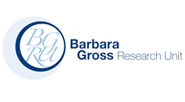
1300 722 206
Contact Us
URINARY STRESS LEAKAGE ie. with run, jump, cough, sneeze etc.
URINARY URGE LEAKAGE ie. urgency, frequency, getting up often at night, leakage with the urge, on the way to toilet or at the cubicle or even wetting the bed.
BOWEL ISSUES INCLUDE: bowel urgency, frequency, loss of control of stool and wind, difficulty with full evacuation, constipation and staining, difficulty with wiping, soiling.
If you have a specific enquiry for our WHRIA specialists
Click HereConservative management: refers to treatments that are non-surgical and non-pharmacological. Pelvic floor physiotherapy can be quite successful for regaining bladder and bowel control in women, men and children. This involves PFM strengthening exercises, functional bracing (gripping up the PFM before a cough, sneeze lift, or bend and to suppress bladder or bowel urgency or to control wind), bladder and bowel retraining, voiding instruction and bladder and bowel functional training. Depending on your symptoms and examination findings some of the following may also be used: electrical stimulation to the muscles, TENS (tingly) machines, bio-feedback, vaginal weights and special gadgets for muscle retraining, diaries, deferment strategies, timed voiding, constipation management, defaecation retraining, and vaginal ring pessaries to name a few.
Medical management: some types of bladder and bowel control issues respond to medications such as – those to calm down over active muscles, hormonal treatments, fibre supplements and appropriate laxatives.
Surgical management: some types of leakage respond to surgery, all surgery has risks and benefits, be sure to discuss these thoroughly with your doctor. Pelvic floor physiotherapy has been found to be complementary to surgery to improve the outcome.
Investigations: Some types of bladder and bowel problems will need to be investigated further with special tests like urodynamics (bladder pressure-flow studies), anal manometry (pressure readings) and physiological testing (nerve evaluation) and ultrasound.
If you have a specific enquiry for our WHRIA specialists
Click Here








© 2025 Women's Health & Research Institute of Australia. Privacy Policy | Terms of Use | Website by Phil Kurth